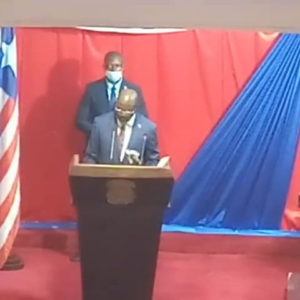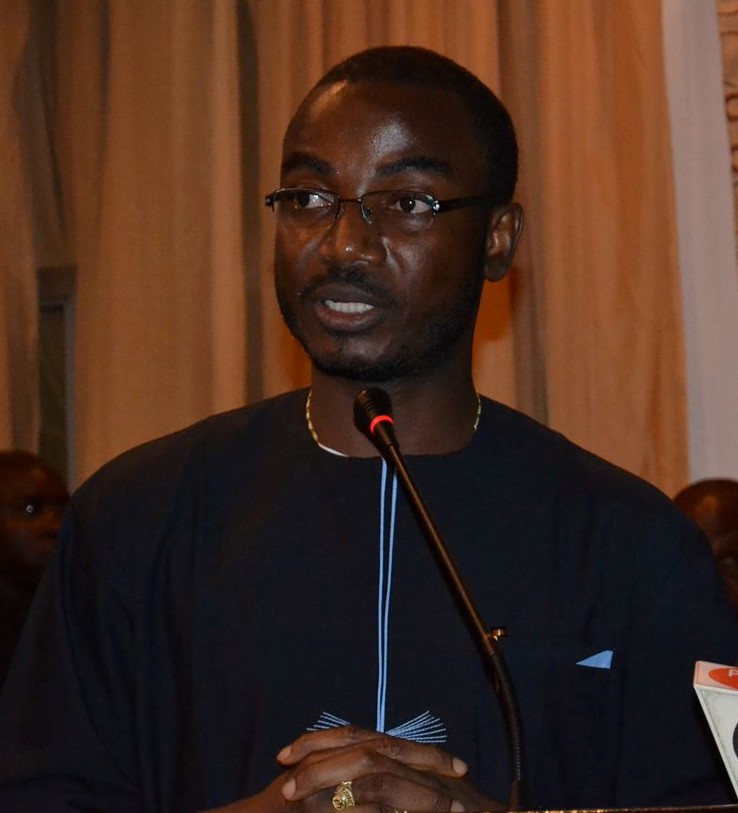By Our Staff Writer
In his recent State of the Nation Address, President George Manneh Weah said US$170. 63 million was contracted by the former Ellen Johnson Sirleaf’s government in domestic debt “but never included in official debt statistics,” a claimed that has been questioned by the then Finance Minister Boima S. Kamara.
President Weah told the joint session of the 54th Legislature on January 25, 2021 that at the end December 2019, the total stock of public debt stood at $1.28 Billion US dollars, of which domestic debt amounted to $419.8 Million US dollars, while external debt amounted to $862.87 Million US dollars.
“This increase in domestic debt stock is mainly because of the restructuring and consolidation of the Government’s debt to the Central Bank of Liberia. It includes $170.63 Million US dollars that was contracted by the previous administration but never included in official debt statistics. This irregularity has now been corrected,” the Liberian leader reported, three years after replacing Madam Sirleaf on January 22, 2018.

Pres. Weah giving his State of the Nation Address
But in reaction to a Social Media query from www.newspublictrust.com days after President Weah’s report to the nation, former President Sirleaf’s last Finance Minister, Boimah Kamara expressed apprehension as to the veracity of the current President’s claim.
This news outlet wanted to know from the former Finance Minister: Why did Sirleaf government fail to include US$107 million in the official debt statistics? And he gave this response:
“What they are referring to as debt consolidation is something that requires proper scrutiny in the true sense of debt consolidation; something that I see as shifting of burden (GoL obligations) to CBL balance sheet,” Mr. Kamara said.
Before such a conclusion is reached, the former Finance Minister indicated that the whole thing needs to be subjected to an audit by the General Auditing Commission (GAC).
“For me, GAC will have to audit the debt consolidation that was carried out to validate what they are referring to as unreported by Sirleaf Admin. Mind you, we were under an IMF Program up to November 2017 before the Weah Admin took over in January of 2018. I conducted 2 audits, information and debt management systems, which needed to be finalized by a forensic audit. The reports were left on the desk of Minister Tweah (for action-there was no turning over ceremony b/w us). Before any debt consolidation, there should have been the forensic audit that has yet to be done,” Sirleaf’s former Finance Minister explained.
According to Mr. Kamara, “it was almost after two years before the CDC government of President Weah did their ‘debt consolidation’, because they were to conform to an IMF Program that they ignored from the initial get go
If you look at the 107 number, they rejected to accepted IMF Ebola support as Go (Government of Liberia) responsibility; but chose to lay said claim on CBL. So, should one expect the next GoL to not recognize COVID-19 debt they have received from the IMF?”
Background
Back in July 2020, former Finance Minister Kamara published a paper (Liberia-Life After Debt) quoting data as showing a remarkably high rate of growth in public debt within 2 years 3 month of the current Weah administration, compared with post-HIPC 7 years of the Sirleaf administration that ended in 2017.
“Fiscal dominance is slowly creeping given the borrowing pressure on the CBL, which runs contrary to the spirit of fiscal-monetary complementarity. In this regard, we advocate for greater support for the independence of the CBL as the monetary authority. At end-June 2020, the IMF and World Bank jointly classified Liberia’s risk of debt distress as MODERATE, something to claim the attention of policy makers. The debt-to-gdp ratio for Liberia has risen from around 30 percent during the Sirleaf Administration to 51.33[1] percent at end-March 2020. The journey of life after debt is calling for appropriate fiscal rules and tougher vetting of future debt, which should be mainly for growth enhancing projects with high economic returns and not for CONSUMPTION. As the budget hearing process starts, we call on the legislature to consider the facts above during the deliberations surrounding the proposed FY20/21 budget,” former Minister Kamara said in his July 2020 piece.
In his SONA, President Weah said the repayment on Liberia’s domestic debt stock has been structured under the current IMF-supported economic program.
The Liberian leader said that the Government “is now working to validate the stock of other domestic debt. While this work is ongoing, payments on domestic debt have commenced as a means of stimulating the economy. The Government remains committed to servicing domestic debt as a clear strategy toward stimulating growth.”

